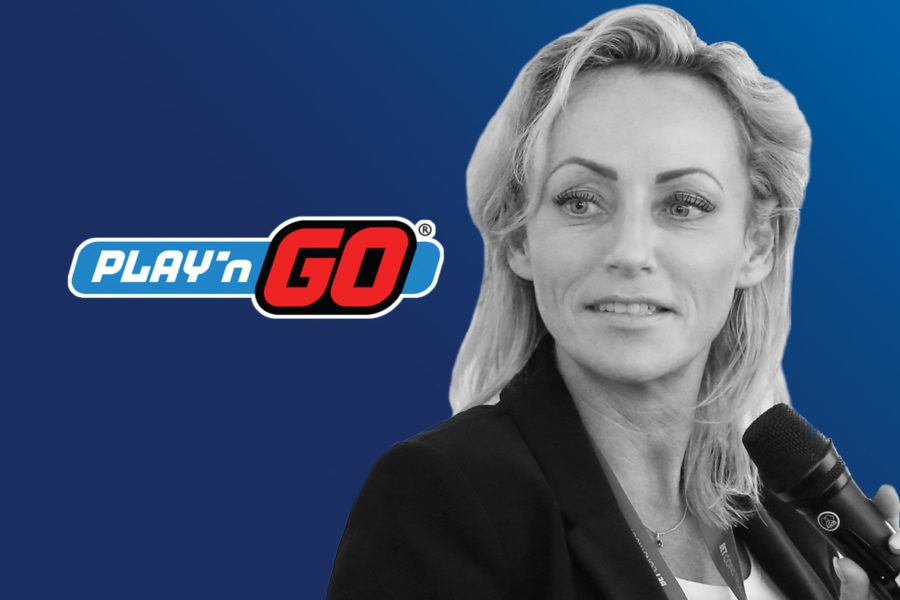Sissel Weitzhandler, Play’n GO: “Our goal is to produce maximum entertainment with minimal impact”

Businesses with ambitious approaches across environment, social and corporate governance can reap wide-ranging benefits, says Play’n GO’s Chief Risk and Compliance Officer Sissel Weitzhandler.
Exclusive interview.- In direct dialogue with Focus Gaming News, Sissel Weitzhandler, director of Risks and Compliance at Play’n GO, explained the company’s strategy in order to guarantee its sustainability. The keys of a compliance culture.
How is Play’n GO fostering an authentic ESG culture (environment, social and corporate governance) And why is this so important?
We’re proud to have been among the first movers in the gaming industry to really push for sustainable and socially responsible growth. But it’s important to acknowledge that things like functioning governance structures, desirable working conditions and effective compliance and risk management procedures don’t just appear overnight. They need to grow organically out of authentic culture, or they become impossible to maintain.
ESG obviously covers a broad spectrum that can impact any business in any field, but from our perspective, we’re certainly seeing our responsibilities grow, particularly as we enter new markets such as the US.
We’re fortunate as many aspects under the ESG umbrella are an innate part of the Play’n GO DNA. For the past six years, I have been part of building Play’n GOs culture of compliance and I can confirm it takes hard work and is exceptionally important to ensure a high level of expertise, and professionalism. We couldn’t have reached where we are today without being a responsible and well-governed business, and it’s really about drawing on this heritage as we face new challenges.
“Sustainability is not about eliminating every risk.”
Sissel Weitzhandler, Chief Risk and Compliance Officer at Play’n GO
Compliance is one great example. Good governance and strong compliance are there to enable and safeguard a business, not to stall it. Sustainability is not about eliminating every risk.
It is about understanding the risks that a business is exposed to, assessing how such risks can be appropriately mitigated and seeing mitigation measures implemented and regularly reviewed. In our experience at Play’n GO, openly communicating and fostering a positive collaboration with regulators has always been at the heart of our business.
What about some of the challenges our industry is facing across ESG?
There are a few areas here where I personally believe we as an industry need to be particularly careful. Take the example of charitable donations.
Building strong community relations and giving back to these communities are very important aspects of the “social” part of ESG. Where it can easily become problematic is when the act of giving back to the community is used for promotional means, in what can be perceived to be in an exploitative way, or, worse, if promotions are run encouraging players to “gamble for a good cause”. We have in recent months seen examples of this, and it does concern me.
See also: Play’n GO introduces a new online slot: Derby Wheel
Our industry is linked to too many risks, and I personally would not be surprised to see regulators step in sooner rather than later, and if I am right, if and when they do, it will not reflect well on our industry as a whole.
Donations are not wrong per se, but they need to be properly targeted to areas such as research, prevention and the treatment of problem gambling. Donations that are focused on brand image, promotions or encouraging people to gamble for good causes are not sustainable.
How do environmental considerations factor into Play’n GO’s strategy?
I’m a firm believer that a company’s approach to the environment is a clear indicator of its values and direction of travel. At Play’n GO, we have big ambitions in this space. Our goal is to “produce maximum entertainment with minimal impact”. We have pledged to be climate neutral by 2025; that’s a higher aim than the Paris Agreement.
Obviously, this is a major challenge and we’re looking at every aspect of the business to help achieve it. We’re reviewing staff travel and offsetting the carbon of those who do travel. We’re finding ways to engage others and ensure we get buy-in from our suppliers, so their strategic outlook is sustainable and complements our ambitions. We have a digital first model across all our offices, and we’re offering employees Є2.000 to set up home offices to reduce travel.
It’s all about making incremental gains, and also sharing our journey with our peers in the industry. We want to be open and honest about our successes as well as where we are finding things more challenging. It’s the only way we’ll reach our targets.
Why should investors be looking at how companies in this industry approach ESG?
The mindset around ESG is changing rapidly. Previously, many saw it as a box-ticking exercise, a burden rather than an opportunity. From our perspective, we’re expanding our ESG initiatives both because it’s the right thing to do, but also because we’re seeing material benefits from them.
Take board representation as one example. The data in this field is very clear. Companies in the top quartile for diversity are 33 per cent more likely to have industry-leading profitability. Funds managed by gender-diverse boards achieve 20 per cent higher returns.
“Diversity needs to start at the top.”
Sissel Weitzhandler, Chief Risk and Compliance Officer at Play’n GO
Put simply, diverse companies are better performing companies. And that diversity needs to start at the top. Whilst there are not any plans for an IPO at Play’n GO, it is an approach we’re benefiting from.
Our management team consists of three women and two men, and it is working very well for us. Ultimately, diversity is simply part of a good business.









